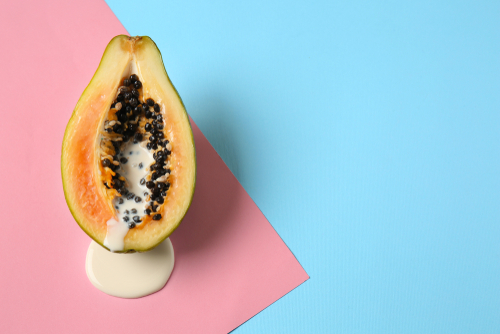
Why am I not getting aroused sexually?
Sexual arousal refers to being turned on sexually and can be sparked by different things (stimuli). For some women, it can be a beautiful smile, hygiene, deep voice, or even the allure of confidence and money. For others, these factors may be a total turn off. The truth? No two women experience arousal the same way.
Here’s a look at both positive and negative influences on female sexual arousal. What some women consider to increase sexual desire, others may see as negatively affecting.
What factors improve arousal?
- Positive body image can significantly enhance sexual arousal. Women who feel good about their bodies, attire, or hair report higher levels of arousal.
- A healthy relationship with a supportive partner can positively impact arousal. Trust and stability in a relationship play a crucial role.
- Understanding your sexual turn on and offs and communicating them with your partner(s)
- Good emotional well-being is another major factor. Young women, with normal levels of circulating estrogen and testosterone, often experience higher arousal.
- A lifestyle that includes regular exercise, no drug use, adequate sleep, and healthy eating habits boosts sexual desire and arousal.
What factors that negatively affect arousal?
Emotional and psychological distress, as well as physical and mental health problems, are linked to low sexual desire. Examples are these are discussed below:
- During menopause, a woman’s can experience a challenge achieving arousal due to declining estrogen levels.
- Previous physical or sexual abuse significantly impacts arousal negatively because the survivor may be anxious or feel uncomfortable engaging in any or certain types of physical intimacy.
- High-stress levels, fatigue, can diminish sexual desire because one may fail to focus on other factors such as stressors and the need for sleep instead of the sexual intimacy
- Mental health issues like depression, anxiety, or psychosis, along with their medications, often lead to sexual dysfunction such as increased anxiety and decreased energy
- Pregnancy and childbirth bring extraordinary stress and fatigue, often reducing sexual function. This is due to factors such as hormonal changes and physical changes.
- Women undergoing fertility treatments may focus more on conceiving than on sexual intimacy for pleasure.
- Health issues such as urine leakage, pelvic organ prolapse, endometriosis, fibroids, hypertension, diabetes, and neurological conditions negatively impact sexual function due to factors such as low energy, discomfort, and negative body image, low lubrication,
- Family planning, particularly some hormonal contraceptives may reduce lower testosterone levels thus negatively affect arousal compared to non-hormonal options like the copper intrauterine device.
- Nicotine, alcohol, and opiates also have negative effects on libido and arousal.
Many factors that positively impact female arousal are interconnected, such as body image, a stable relationship, and a supportive partner. On the other hand, negative factors like fatigue, stress, an unreliable partner, and substance abuse can hinder arousal and desire.
Often, it’s challenging to know the one main cause for reduced arousal and desire.
A visit to the gynecologist or sexologist can be a good starting point for addressing female sexual dysfunction. Treatments are tailored to the individual’s or couple’s specific situation.
Ultimately, understanding the various factors influencing female arousal empowers you to navigate your sexual experiences with confidence and seek appropriate support when needed
